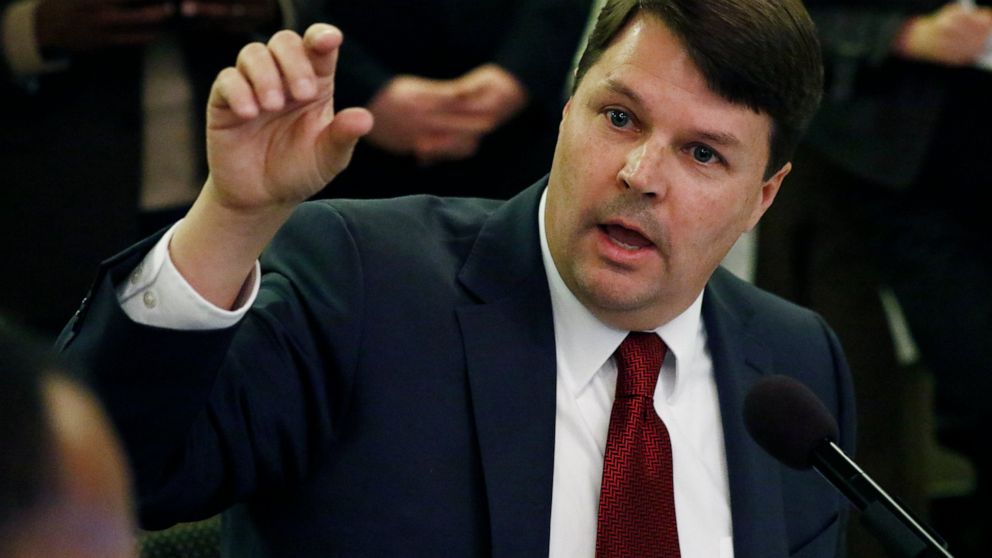Violence at work
Violence at work An attorney who has seen conditions inside Mississippi prisons says lawmakers need to improve lockups that are crowded, shabby and violent
By
EMILY WAGSTER PETTUS Associated Press
February 13, 2020, 10:06 PM
4 min read
JACKSON, Miss. —
Mississippi lawmakers need to act in the next couple of months to improve conditions inside state prisons that are crowded, shabby and violent, a human rights lawyer told legislators Thursday.
Cliff Johnson, director of the MacArthur Justice Center at the University of Mississippi law school, said one quick step would be to reduce the prison population by emulating the mass commutation of some prison sentences in Oklahoma — another Republican-led state with a high incarceration rate. More than 450 Oklahoma inmates were released in a single day in November after the retroactive reduction of sentences for simple drug possession and low-level property crimes.
The U.S. Justice Department announced last week that it is investigating Mississippi’s prison system after a string of inmate deaths in recent months. At least 16 inmates have died since late December, many of them amid outbursts of violence. Most of the deaths happened at the Mississippi State Penitentiary at Parchman, where health inspections have also shown longstanding problems with broken toilets and moldy showers.
Speaking of the federal investigators, Johnson told lawmakers: “We have to take it seriously, because I promise you they do.”
He appeared before two Mississippi House committees — Corrections and Judiciary B.
More than two dozen prisoners’ rights protesters attended the hearing at the state Capitol, wearing thick black tape over their mouths to symbolize what they said was state leaders’ unwillingness to hear about people being hurt or killed in prisons.
“We will continue to be a voice for the voiceless,” Sharon Brown of the Mississippi Prison Reform Coalition said in a statement.
Mississippi is one of the poorest states in the U.S. and Johnson said it has the third-highest incarceration rate in the world. The state’s prison population increased dramatically starting in the mid-1990s after lawmakers required all felons to serve at least 85% of their sentences. The number of prisoners grew from about 12,500 in 1995 to a peak of about 23,000 in 2008. It is now about 19,000.
The 85% rule was erased years ago, but Johnson said that as of November, more than 14,000 Mississippi inmates had at least one sentence that makes parole impossible. A bill that legislators could consider this year would open the possibility of parole consideration. Inmates convicted of nonviolent crimes could be considered for parole after serving 25% of a sentence or 10 years, whichever is less. Those convicted of violent crimes could be considered after serving 50% of a sentence or 20 years, whichever is less.
Such a system would give inmates an incentive to behave well and to participate in education or training programs, Johnson said. He said the current system lacks such incentives for many inmates.
“With this all-stick-and-no-carrot system, we have deprived ourselves of a very important tool for protecting inmates and the correctional officers who work in our prisons,” Johnson said in an interview after the meeting.
Republican Rep. Nick Bain asked Johnson about staffing levels at Mississippi prisons. Leaders of the state Department of Corrections have told legislative leaders for years that it’s difficult to hire guards because of low pay.
Johnson said Mississippi has one guard for almost every 17 inmates, while Louisiana has one guard for every 5.5 inmates and Tennessee has one guard for every four inmates.
“We’re not going to hire our way out of this problem,” Johnson said.
A Mississippi Parole Board member, Steven Pickett, said Thursday that Mississippi needs to improve programs to help people after they leave prison, such as those to ensure that people with addiction don’t slip back into illicit drug use.
“Everybody is going to perform better in some type of structure with expectations,” Pickett said.
